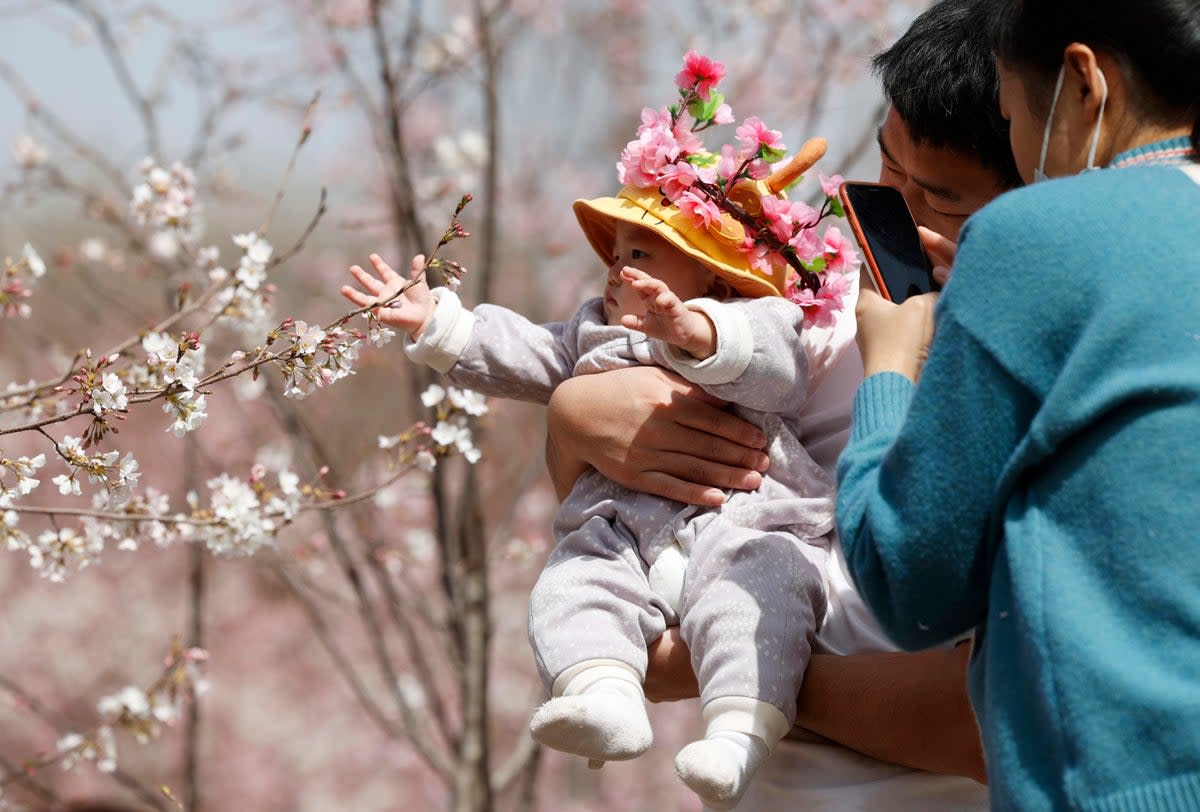China’s population falls for the first time in 60 years

China’s population has fallen for the first time in more than 60 years – a turn that is expected to be the start of a long period of decline, despite major efforts from the government to try and encourage more births.
The country had 1.41175 billion people at the end of 2022, compared with 1.41260 billion a year earlier, the National Bureau of Statistics said. That means a fall of 850,000 people, the first since 1961. In the long term, UN experts see China’s population shrinking by 109 million by 2050, more than triple the decline of their previous forecast in 2019. This will mean a shrinking labour force and a greater burden on healthcare and other social security costs.
The national birth rate also hit a record low, 6.77 births per 1,000 people, down from 7.52 in 2021. For comparison the birth rate in the UK was 10.08 in 2021 and in the US, 11.06. The birth rate in India, which is poised to overtake China as the world’s most populous nation was 16.42. The death rate across China last year increased from 7.18 per 1,000 people to 7.37, the highest figure since 1976. The impact of Covid-19 may also see that figure increase again in the coming year.
In a series of tweets, Yi Fuxian, an expert on Chinese population trends at the University of Wisconsin-Madison, said that the data reflected how China’s population began to decline nine to 10 years earlier than projections by Chinese officials and the United Nations.
“This is the first population decline since 1960, when the Great Leap Forward led to famine. Unlike 1960, 2022 is a natural and irreversible population decline,” Mr Yi said.
He added that China’s “real demographic crisis is beyond imagination”. China’s median age increased from 22 in 1980 to 41 in 2020 and will rise to 58 in 2050,” Mr Yi has predicted.
For years, China has sought to encourage more births. It scrapped the controversial one-child policy in 2015 and laid out financial incentives such as tax breaks if couples had two children. In October 2022, President Xi Jinping also made boosting birth rates a priority. Mr Xi said in the Communist Party National Congress, held every five years, in Beijing that his government would “pursue a proactive national strategy” in response to the country’s ageing population. However, measures so far do not appear to have a sustained impact, with the rising cost of living among the reasons people are delaying having children, or dismissing the idea entirely.
Implications of Population Decline in China 2 pic.twitter.com/QSyo5fnImU
— 易富贤Yi Fuxian《大国空巢》 (@fuxianyi) January 17, 2023
The figures from the statistics bureau revealed that the number of Chinese women of childbearing age, which the government defines as aged 25 to 35, fell by about 4 million. Men outnumbered women by 722.06 million to 689.69 million, a gender imbalance that was exacerbated by the one-child policy.
Kang Yi, head of the statistics bureau, dismissed concerns about the population decline, telling reporters that “overall labour supply still exceeds demand”. According to the government’s figures, China’s working-age population (between 16 and 59 years old) totaled 875.56 million, accounting for 62 per cent of the population, while those aged 65 and older totaled 209.78 million, accounting for almost 15 per cent of the total.
The figure includes only the population of mainland China, excluding Hong Kong and Macao as well as foreign residents.
Along with Japan and South Korea, China has one of the lowest fertility rates in the world.
“In the long run, we are going to see a China the world has never seen,” Wang Feng, a professor of sociology at the University of California, Irvine who specialises in demographics in China told The New York Times.
“It will no longer be the young, vibrant, growing population. We will start to appreciate China, in terms of its population, as an old and shrinking population.”
The population data was the top trending topic on Chinese social media after the figures were released. One hashtag, “#Is it really important to have offspring?” had hundreds of millions of hits.
“The fundamental reason why women do not want to have children lies not in themselves, but in the failure of society and men to take up the responsibility of raising children. For women who give birth this leads to a serious decline in their quality of life and spiritual life,” posted one user under the moniker Joyful Ned.
The United Nations has said that population increases up to 2050 will be concentrated in eight countries – the Democratic Republic of the Congo, Egypt, Ethiopia, India, Nigeria, Pakistan, the Philippines and Tanzania.
Reuters and Associated Press contributed to this report


